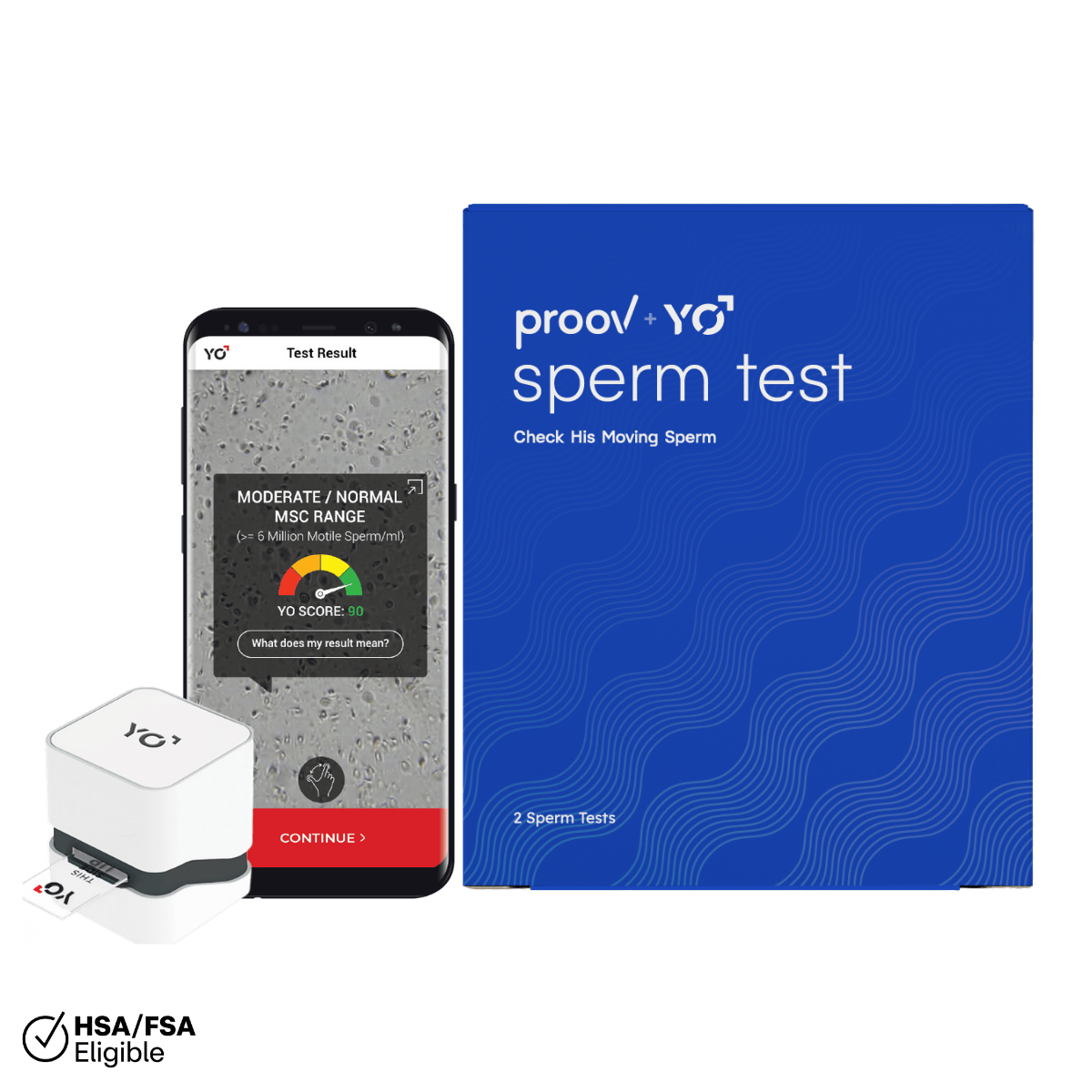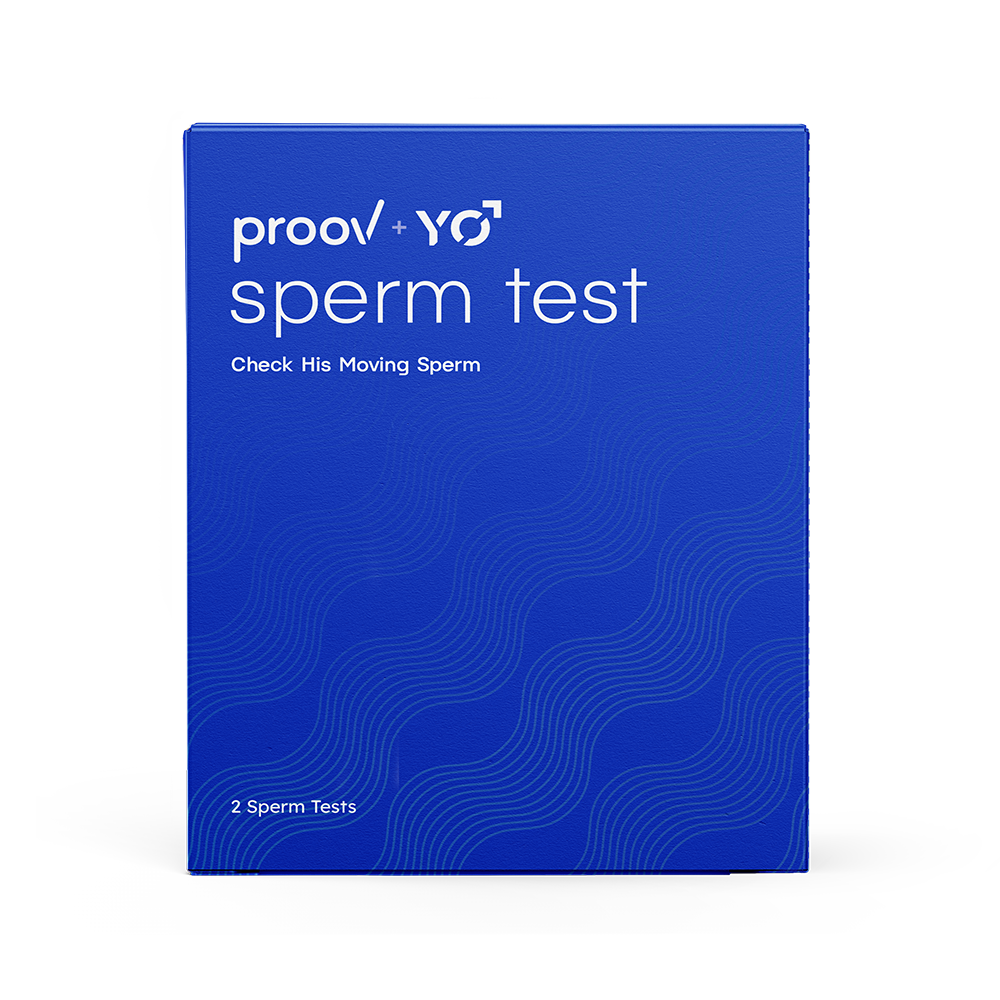Written by: Dr. Amy Beckley, PhD, Founder and Inventor of the Proov test — the first and only FDA-cleared test to confirm successful ovulation at home.
Written on 10/4/21
We endure a lot of changes throughout our cycle — from mood swings, to bloating and changes in energy levels, our cycles sure keep us on our toes!
Some of us may even experience changes in our period flow. Many people experience spotting before their period, which can signal one of many different things. Keep reading to learn 12 possible reasons you may be spotting before your period.
What does spotting usually look like and when does it occur?
Spotting appears as any light amount of bloody discharge, occurring outside the normal period flow.
Often, spotting shows up as small amounts of blood that you may notice on your pantyliner, underwear, or sometimes only when you wipe after using the restroom.
At times, the amount of blood can be so small, that instead of visible blood, it looks like a pink or beige cervical mucus. You also may experience a darker and thicker discharge, like brown, dried old blood.
Spotting can look different for everyone and can have multiple causes, but its defining characteristic is the lack of a red, full blown bleeding, with or without clots.
Although spotting before your period can be common, it actually should not be considered “normal” or taken for granted — especially if you are trying to conceive! Studies have shown that you may have lower chances of conception during a cycle when you experience intermenstrual bleeding (i.e. spotting or bleeding outside of your normal period).
Usually, spotting isn’t something to worry about, but it is always best to check with your doctor to determine the underlying cause. Keep reading to learn about 12 potential causes of spotting before your period.
12 Possible Reasons for Spotting before your Period
What causes spotting before period? Here are 12 possible reasons for spotting before your period, so you can have more informed conversations with your doctor.
1. Low progesterone
Low progesterone is one of the main causes of spotting before a period. After ovulation, the empty follicle from which the egg was released turns into something called the corpus luteum.
The corpus luteum produces progesterone — the hormone necessary for making the uterine lining receptive to an embryo — to sustain a healthy luteal phase, optimal for implantation and pregnancy. A normal and healthy luteal phase lasts around 12-14 days, long enough to allow an embryo to implant successfully.
Sometimes, progesterone levels drop sooner than they should, your uterine lining starts shedding and you start spotting few days before period, also known as luteal phase bleeding. This is known as a luteal phase defect, or short luteal phase.
You can track PdG levels (urine marker of progesterone) during the luteal phase with Proov PdG tests to ensure your levels aren’t dropping too early!

Sometimes, progesterone levels drop sooner than they should and your uterine lining starts shedding a few days before your period is due, which can cause spotting.
2. Implantation
Implantation spotting may occur in up to 25% of pregnancies, but most people never experience it. If they do, usually they’ll notice some light bleeding right around when their period is due and they may sometimes mistake it for a real period — especially if they don’t track their cycles.
Implantation spotting occurs when the embryo attaches itself to the uterus and damages some tiny blood vessels in the process, causing them to burst. This type of spotting typically goes away in a few days at most, does not get more severe, nor cause bad cramping.
It’s important to note that bleeding in early pregnancy may be a sign of a more serious underlying health issue. If you get a positive pregnancy test and experience red blood, cramping, or clots, we recommend consulting your doctor,
3. Early pregnancy
Early pregnancy spotting is not to be mistaken for early pregnancy bleeding we previously mentioned. Very light and short lived spotting in early pregnancy may be nothing to worry about, and may be caused by implantation, intercourse irritating your swollen cervix, or vaginal progesterone suppositories.
It shouldn’t last long and it is not supposed to be painful. If you are experiencing lots of blood, pain, or clotting, we recommend consulting your doctor.
4. Ovulation
Ovulation spotting is even less frequent than implantation spotting. It typically occurs after a positive LH test, right around ovulation. It may be related to a sudden drop in estrogen and is usually accompanied by mittelschmerz, commonly known as “ovulation cramps”.
5. Birth control
Some forms of birth control may cause intermenstrual bleeding and even irregular periods. Usually, we see this more often when you start using hormonal contraception or change your contraceptive method.
Spotting may also occur if you skip a dose of your birth control pill or if you take it incorrectly. Sometimes, you may experience spotting while on the pill even if you had regular natural cycles before. In this case you may want to consult your doctor and to explore other contraceptive methods.
6. Perimenopause
Perimenopause can cause intense hormonal changes in a woman’s life. Characterized by irregular or missed periods, perimenopause may present itself with spotting before the expected period, either due to low progesterone, low estrogen, or to anovulatory cycles (cycles in which ovulation does not occur).
7. Ectopic pregnancy
Ectopic pregnancies are a serious and life threatening issue and require urgent medical attention. When an embryo implants outside the uterus, such as in the fallopian tubes, spotting may be one of the symptoms. If you have a positive pregnancy test, experience spotting, severe cramping, nausea, or dizziness, we recommend contacting your doctor immediately.

Ectopic pregnancies are a serious and life threatening issue, and require urgent medical attention.
8. Vaginal infections
Vaginal infections may cause spotting, either after intercourse or between periods. If you also have symptoms like weird and foul smelling discharge, painful or burning urination, itching around your vagina, or vaginal pains, we recommend consulting your doctor for further testing.
9. Sexual intercourse
Rough intercourse can irritate the cervix, a sensitive part of your reproductive tract. If spotting occurs immediately after sex, or even a few hours afterwards, there’s no need to worry. It should go away on its own.
10. Endometriosis
Endometriosis occurs when endometrial tissues (i.e. your uterine lining) grows outside the uterus. It is usually accompanied by pelvic pain, painful intercourse and periods, fatigue, and, in some cases, infertility. Spotting may occur between periods for those with endometriosis.
11. Uterine fibroids or cervical polyps
Uterine fibroids and cervical polyps may be another cause for spotting before a period. Many people do not even know they have any until they go for a regular check up and an ultrasound. If you have concerns about uterine fibroids or cervical polyps, we recommend consulting your doctor.
12. Some forms of cancer
Cervical, uterine, and ovarian cancers are another serious cause for intermenstrual bleeding. Especially if you have already gone through menopause, it’s best to check any recurring spotting with your doctor
When to See a Doctor about Spotting
Spotting before a period may not be a cause for concern. However, if spotting comes with other symptoms or occurs cycle after cycle, you may want to consult your doctor to rule out any major areas of concern. We always believe that more information is better!













